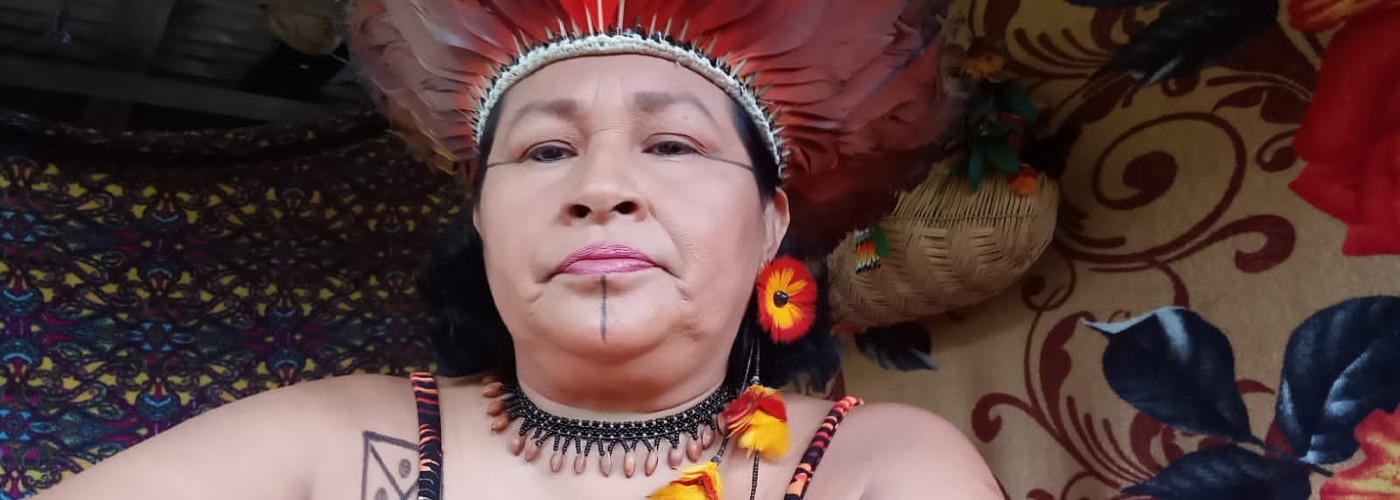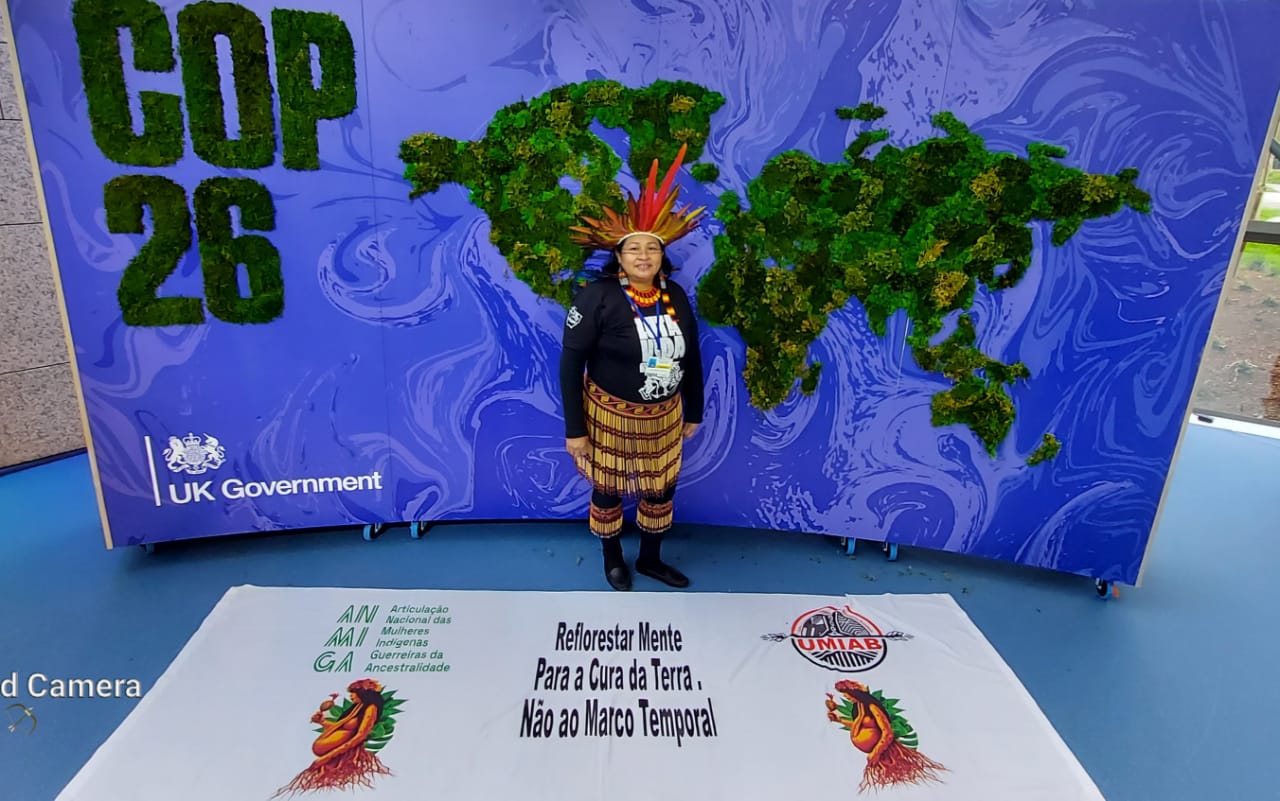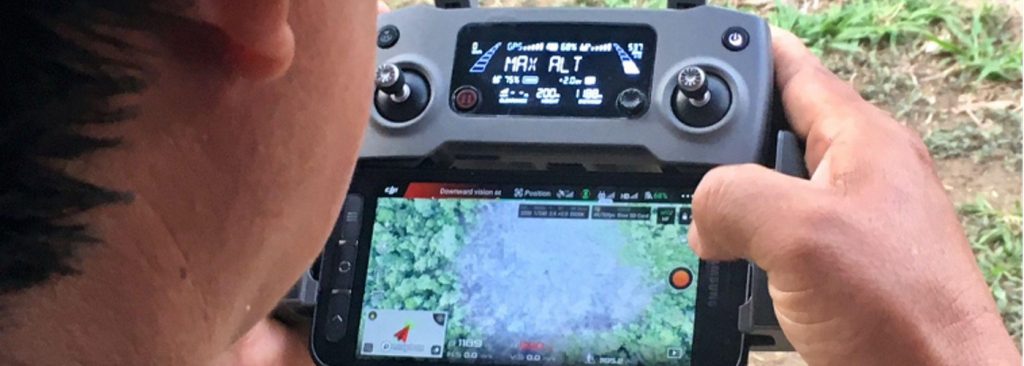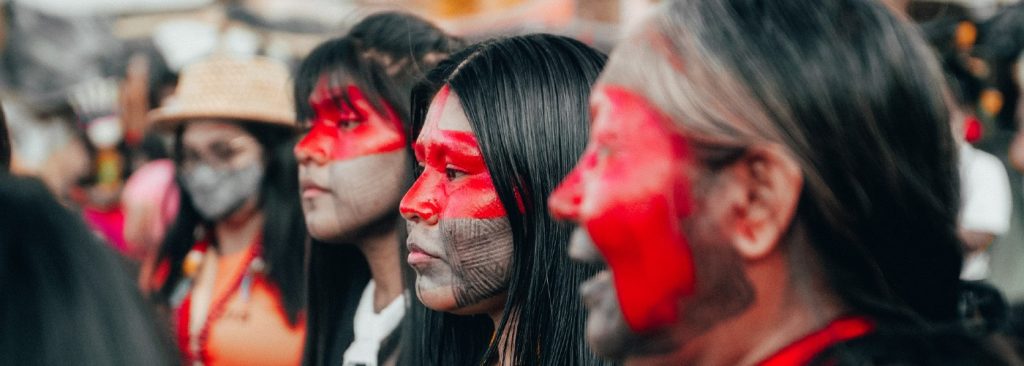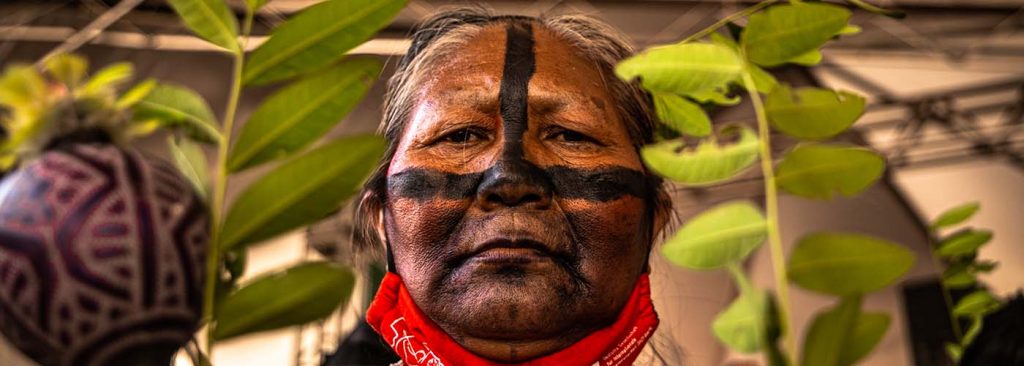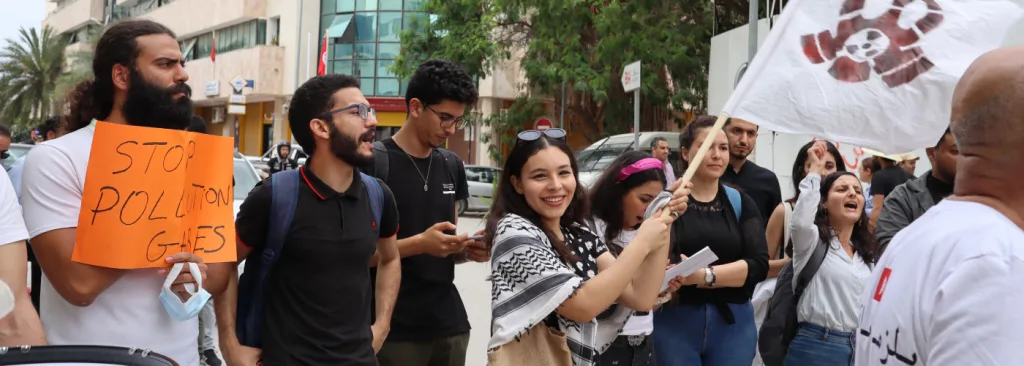In Brazil, Telma heads the Union of Indigenous Women of the Brazilian Amazon (UMIAB), an organization that champions the rights of Indigenous women. Her community lives on the Mangueira Araçá lands in the Amajari region, where the climate crisis is a cause for deep concern. “We have been fighting for years to preserve our territory and to protect the Amazon rainforest from mining and pollution. Now we have to fight against climate change,” she sighs.
The voice of the earth
In the language of her ancestors, Telma’s name is Paata Maimu: the voice of the earth. The name suits her mission. “When I was little, I used to play in a small river, but today that river is dry. The same reason it dried up is also why it’s now more difficult to grow crops and why the risk of forest fires is greater: climate change.”
Telma lives in the state of Roraima in Brazil, where the impacts of climate change are being felt by every living being. “It’s getting warmer and warmer. Even the birdsongs are different now. Climate change is not only affecting the environment and the food we grow, but our health as well.”
The more forest disappears, the faster climate change takes hold.
A chain of events
She sees a chain of events unfolding as the environment around her changes rapidly. “The more the forest disappears, the more the air gets polluted … the faster the change takes place.” And these changes have global impact. “Indigenous communities don’t just take care of their own forests; they take care of the environment of whole world. It’s high time that the voices of Indigenous people are heard, including outside Brazil!”
Voices for Just Climate Action
“Indigenous women make a difference because we are concerned with life and the climate is also life,” Telma affirms. Indigenous women also know best what it takes to arm themselves and vulnerable groups against the consequences of the climate crisis. That’s why we support UMIAB’s work as part of a coalition with COIAB through our Voices for Just Climate Action program. COIAB focuses on Indigenous female leaders in the Amazon region, and we support them in their participation at international forums and in negotiations on climate issues. An important part of this is providing English and Spanish training as language is a major hurdle in their policy influencing and networking. We also help them organize and campaign effectively and provide a network in which they can reinforce each other.

